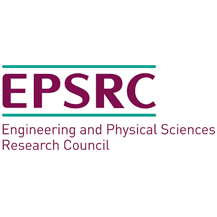In today’s blog, Nicholas Duvall, Research Development Officer, highlights the Engineering and Physical Sciences Research Council (EPSRC) Programme Grant.
A Programme Grant from the EPSRC is one of the most prestigious research awards available in the disciplines within that council’s remit, which in addition to Engineering and Physical Sciences (EPS) includes Mathematics and ICT. These grants provide support over the longer term (for up to six years) for a range of research activities focused on a strategic theme. They are also large awards – the average size of currently active programme grants is £5.1M. EPSRC’s rationale for offering an award of this scale, for an extended length of time, is that it gives leading researchers stable, flexible funding to be ‘creative, innovative and able to address some key challenges’.
The ‘big questions’ which these programmes address tend to be wider in scope than those tackled in a Standard Grant, and they must be of substantial significance. How do research teams alight on the right questions? Sometimes they come from engaging with the potential users of research. For example, Nobuko Yoshida, of the Department of Computing at Imperial College London, who partners with the School of Informatics on the programme grant ‘From data types to session types’, cites engagement with industry partners as an important step in determining the focus of a proposal’s questions in her field. Alan Murray, from the School of Engineering, who led the programme grant ‘Implantable microsystems for personalised anti-cancer therapy’, recalls that his team was first approached by clinicians, who wanted to make better use of the fact that radiotherapy can be delivered very accurately, by developing technology to determine where it can be best delivered.
The topics are very often interdisciplinary, and it can be a challenge ensuring that the programme of research is sufficiently within EPSRC’s remit, with questions hinging on EPS research, to be eligible for funding. EPSRC supports researchers in this regard by incorporating a mandatory pre-outline stage to the application process. Applicants complete a short web form outlining their research vision, as well as the reasons why the project’s worth doing, why a programme grant is required, and why now. This forms the basis of a discussion with EPSRC staff on whether the project is appropriate for the scheme. If invited to continue, there are then outline, full application and interview stages.
Alan Murray advises that a successful application will tell a good story, the set of programmes proposed clearly hanging together. This is especially important for the interview; there you will also have to answer a lot of project-management type questions, so bring along colleagues who will lead on different aspects of the project. You will need to be clear on where the review points of your various work packages will be, demonstrating that you will be able to redeploy project resources to the most promising strands, and close any which may not work.
If you’re not working in an EPS field – don’t despair, other research councils run similar schemes, such as NERC’s Large Grants, MRC’s Programme Grants, BBSRC’s Strategic Longer and Larger Grants. Get in touch with Edinburgh Research Office to discuss your options.
Applying for a programme grant (or equivalent) is a substantial undertaking, and reviewers and committees will scrutinize teams’ track records – leaders will need solid experience of delivering major projects at scale. However, the professional rewards are considerable, and Edinburgh Research Office can assist at each stage of the application process.
Please get in touch with me, the Research Development Officer, if you would like to discuss applying for an EPSRC Programme Grant.
Thank you to Professor Nobuko Yoshida, Professor Alan Murray and Professor Philip Wadler.



